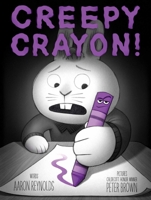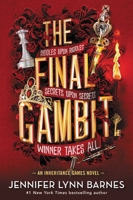Top Tropes of Romance Literature: Regency Edition
The Top Tropes of Regency Romance
By Ashly Moore Sheldon • February 03, 2022
From arrogant dukes to secret identities to beguiling, bookish wallflowers, Regency romances feature some familiar (yet fetching) tropes. And for some of us, these juicy scenarios are part of what brings us back for more. Here are some of our favorite tropes from the genre.
Seducing the Duke
It goes without saying that a duke would be an attractive match for the damsels of the ton, i.e. Britain's high society. But in many of these stories the duke finds himself at odds with the woman he desires.
In Bringing Down the Duke by Evie Dunmore, the cold and calculating Duke of Montgomery is affronted by a group of suffragists encroaching on territory. But he finds himself even more threatened by his impossible attraction to Annabelle, a brilliant, but destitute, beauty amongst them.
And in Tamara Gill's To Bedevil a Duke, the newly widowed Darcy de Merle flouts decorum by refusing to mourn the loss of her cheating husband. When Cameron, the uptight Duke of Athelby, steps in to remind her about the rules of etiquette, a fiery battle of wills ensues.
From Mary Balogh, comes Slightly Dangerous featuring Wulfric Bedwyn, the reclusive, haughty Duke of Bewcastle. He never thought he'd lose his heart. But after meeting the impulsive, free-spirited Christine, he is consumed by his desire for her. If only she'd comply with his demands.
Reforming the Rake
The rake is a recurring figure in Regency literature. Those ravishing bad boys are simply irresistible, right? And (wouldn't you know it) sometimes they turn out to be dukes as well! For example, in Duke of Disrepute by Alexa Aston, Weston, the Duke of Treadwell becomes London's most notorious rake after his engagement ends in heartbreak. But when he rescues Lady Elise and her little daughter from disaster, he becomes captivated by the beautiful, young widow.
In other stories, the object of the rake's affection is an unlikely figure: a wallflower for example. The Devil in Winter by Lisa Kleypas is the story of shy, stammering Evangeline who, desperate to escape scheming relatives, seeks the help of Sebastian, a sinfully handsome viscount. A marriage of convenience could serve them both . . . but he never expected to fall in love.
Fake Relationships
Marriages of convenience or false engagements are another staple of the genre, allowing two characters to escape the restrictive social rules of the time to get some (ahem) alone time. Fans of the wildly popular Bridgerton will recognize this plot device used in Julia Quinn's first book of the series, The Duke and I.
In Accidentally Compromising the Duke by Stacy Reid, Adeline endeavors to avoid marriage to a repugnant early by getting herself caught in a compromising position with the fellow of her choice. But her plan goes awry when she enters the wrong bedchamber.
Masters of Disguise
In a society where status and station rule, a character may hide their identity to escape scandal, as in Courtney Milan's The Duchess War about Minerva, looking for a fresh start as a quiet, unassuming wallflower. When a handsome duke arrives in town, his attention is the last thing she wants. But that's precisely what she gets.
Other reasons for false identities may include amnesia or personal vendettas. In Gentleman Jim by Mimi Matthews the dashing, mysterious Viscount St. Clare has returned home to England to settle a score. But he wasn't prepared for Maggie. She's bold and beautiful—and convinced he's not who he says he is.
An Unmarriageable Woman
Whether for reasons of poverty, independence, or simply too much intelligence, many of our favorite heroines have been deemed an unsuitable match by their clueless counterparts (Darcy, we're talking to you!). These are some fun examples of this trope.
Georgette Heyer is considered a progenitor of this particular genre of historical fiction. Her Arabella, published in 1949, tells the story of a headstrong young woman. Headed to London in search of a suitor, a carriage breakdown forces her to seek refuge in the hunting lodge of the wealthy Robert Beaumaris. When she overhears him suggesting that she's after his money, she impetuously (and falsely) declares herself an heiress.
In Sweet Disorder by Rose Lerner, Phoebe Sparks is a prickly widow who has vowed never to marry again. But a hotly contested local election draws attention to her unmarried status and she becomes the target of a campaign to get her to wed and add another voter to the rolls.
And in Tessa Dare's The Wallflower Wager, Lady Penelope is an animal-loving spinster whose ruthless (but attractive) next door neighbor, Gabriel, demands that she get rid of her many rescued pets. Penny responds with a challenge.
This is only the first in our series featuring romantic tropes. Look forward to new installments, featuring different flavors of romance, all month.
Follow us on Facebook, Twitter, and Instagram for daily book recommendations, literary tidbits, and more.





















